Tag: Jocelyn Boiteau

The State of Food Loss Along Perishable Vegetable Supply Chains
Abstract This research was done in the context of tomato supply chains in Chittoor District, Andhra Pradesh and Hyderabad city, Telangana. The study aims were (1) to examine the extent, stages and determinants of food loss along tomato supply chains from farmer to retail; (2)...

Notes from the Field: Counting Tomatoes and Making New Friends
This blog post is part of TCI’s “Notes from the Field” series, which explores the personal side of the field-based research performed by TCI scholars as part of their graduate studies.
Eight thousand, two hundred and fifty miles from Ithaca,…
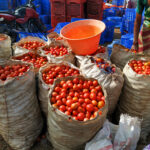
TCI Researcher Comments on Skyrocketing Tomato Prices
Jocelyn Boiteau, a postdoctoral associate at the Tata-Cornell Institute for Agriculture and Nutrition (TCI), was quoted by CNN on India’s recent spike in tomato prices. The cost of tomatoes rose more than 400% due to crop failures, leaving many unable…

Plant-Based Meats May Not Measure Up for the Developing World
Is your burger made of beef or pea protein isolate mixed with coconut oil? As efforts to stop climate change ramp up, increased attention is being given to swapping out meats and dairy items for plant-based alternatives designed to replicate…
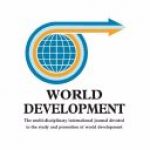
Making Meat and Milk from Plants: A Review of Plant-Based Food for Human and Planetary Health
Abstract Interest in alternative protein sources to substitute for animal source protein-rich foods has emerged alongside calls for sustainable food systems to meet protein demands as the global population grows towards a projected 9.8 billion people by 2050. Food companies are capitalizing on sustainable diet...
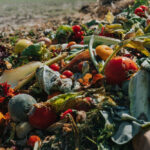
The First Step to Reducing Food Loss and Waste Is Deciding What It Is
As it makes its journey from the farm to consumers’ plates, around a third of the total food produced in the world is lost or wasted. Reducing such waste is key to efforts to achieve sustainable food systems, but before…
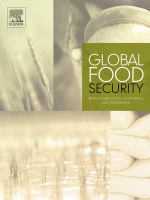
Can We Agree on a Food Loss and Waste Definition? An Assessment of Definitional Elements for a Globally Applicable Framework
Abstract Recent strategies for achieving sustainable food systems have called for reducing food loss and waste (FLW), most notably Sustainable Development Goal (SDG) target 12.3. This review aims to compare FLW definitions that are relevant to SDG target 12.3 and opportunities to harmonize the FLW definition. Using the FAO...
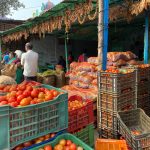
Study Offers Clues for Reducing Food Loss and Waste in Perishable Supply Chains
Fresh fruits and vegetables are an important source of micronutrients, but access to them is limited in developing countries like India because of several factors, including food loss and waste. New research on tomato supply chains from the Tata-Cornell Institute…

Food Loss of Perishable Produce from Farm to Retail: Evidence from Tomato Supply Chains in South India
Abstract Background Reducing food loss and waste (FLW) may narrow gaps between fruit and vegetable production and recommended intake. However, FLW estimates are inconsistent due to varying estimation methods. Objectives Using multiple estimation approaches, we examined the extent and determinants of FLW along tomato supply...
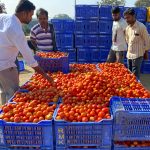
2020-21 Annual Report: Preventing Food Loss to Boost Fruit and Vegetable Availability
Led by Jocelyn Boiteau, a TCI alumna and postdoctoral researcher, TCI is working to address knowledge gaps in estimating food loss along perishable vegetable supply chains in India to inform effective loss prevention strategies.

